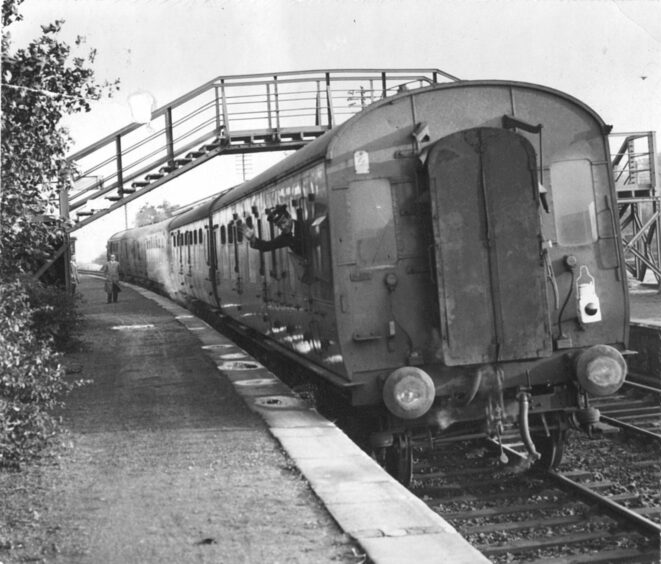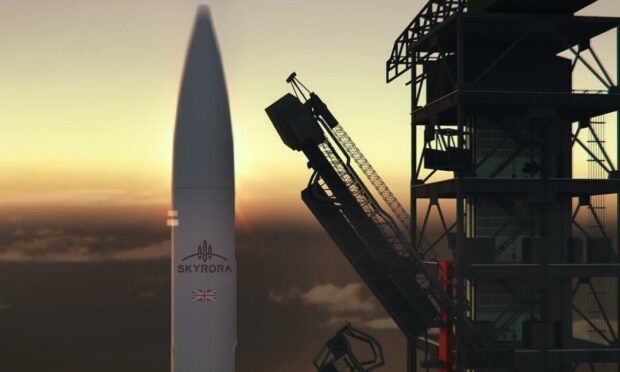There was a glimpse of the future this past week, and it was scary.
It didn’t involve an energy crisis, climate catastrophe, potential pandemics, worsening wars or Ant and Dec accepting they’d been vastly overexposed on TV and voluntarily retiring to a silent monastery.
Worse than all that, it was the prospect of our porridge being turned into “oatmeal Arancini” – a kind of Italian street food – made with white wine, mushrooms, vegan cheese and garlic. It’s enough to make one hurl one’s spurtle across the kitchen in dismay.
Mind you, one wouldn’t want to fling anything across Mrs F’s kitchen, especially if there was even the tiniest chance of her getting in the way. That would have painful repercussions akin to treading on an upturned garden rake, sending its handle on a rapidly upward trajectory into a delicate part of the anatomy. Ouch.
Garlic or curry sauce with my porridge is a step too far
I never stand in the way of genuine innovation, or garden rakes, and don’t criticise Netherlander Miriam Groot whose exotic Arancini recipe won the Golden Spurtle at the annual Carrbridge-based World Porridge Making Championships. One of the runners-up offered spicy pork and oatmeal mince topped with curry sauce and chocolate, served under an omelette.
Each to their own, perhaps, but garlic or curry sauce with my porridge is a step too far.
Going back to the future for transport options
Isn’t anything conventional now safe from being tweaked in the name of progress? Take transport, for example.
Not that long ago it was confidently predicted that private transport was the way forward and that public transport required drastic cutbacks. Aberdonians turned up gleefully in 1958 to watch the burning of their last trams. Others thought it essential to prune rural railway lines like an overgrown hedge. The transport future was slimmer, faster, cleaner and cheaper, they told us.
Well, they’ve changed their tune. Now we’re told the future lies in electric power, new roads are evil and public transport is again key. It’s the sort of spectacular back-flip that would make Olympic diver Tom Daley’s eyes water.
Imagine how valuable the Formartine and Buchan rail line from Dyce to Peterhead and Fraserburgh would be today, or the Banff coastal lines. What a world-beating attraction the Deeside line to Ballater would be now, not to mention Leuchars to St Andrews or Connel Ferry to Ballachulish.
Amazingly, to cap it all, it’s being suggested that electric trams might return to Aberdeen’s streets. Modern trams are environmentally clean, efficient and popular across Europe and beyond, without any of our bone-shaking “come oan, get aff” attitudes of the 1950s where the average “clippie” would happily have challenged any burly Royal Marine to a fight, and won. Aberdeen’s trams were even painted green. Very in vogue nowadays.
Blasting off into space
But while 19th Century technology is being re-evaluated, 21st Century technology is on course to blast off from Unst next year as the SaxaVord Spaceport propels Shetland into space. No, not the islands, but sensational science that will see satellites launched into orbit from Britain for the first time.
Naturally, green credentials are now de rigueur so the rockets will be propelled by fuel made from plastic waste. I wonder if the contents of Fyne Place’s wheelie bin could be used to make a kind of rocket fuel to power our own car in future.
It’d be fun to see F1 racing cars powered by the contents of individual driver’s dustbins. Can I suggest the first thing Lewis Hamilton dumps in his is that appalling voluminous Burberry kilt and breeks he wore at the Turkish Grand Prix. Some say he’s a style icon. I reckon he looked a right wally. If that’s a fashionable vision of the future, count me out.
If going back to the future means simply sticking to boiling water in your porridge with salt – naturally-produced Scottish sea salt, of course – then I’m all for it.
Instead, maybe the success secret to revolutionary eco-friendly fuels lies in making them from unpalatable Arancini or curry-flavoured porridge. If going back to the future means simply sticking to boiling water in your porridge with salt – naturally-produced Scottish sea salt, of course – then I’m all for it.
Everyone who volubly insists that they, and only they, possess the railroaded route to charting our futures must be treated with caution. History demonstrates that their equally opinionated predecessors were serially spectacularly wrong. Let them all metaphorically stand on upturned garden rakes, I say.




